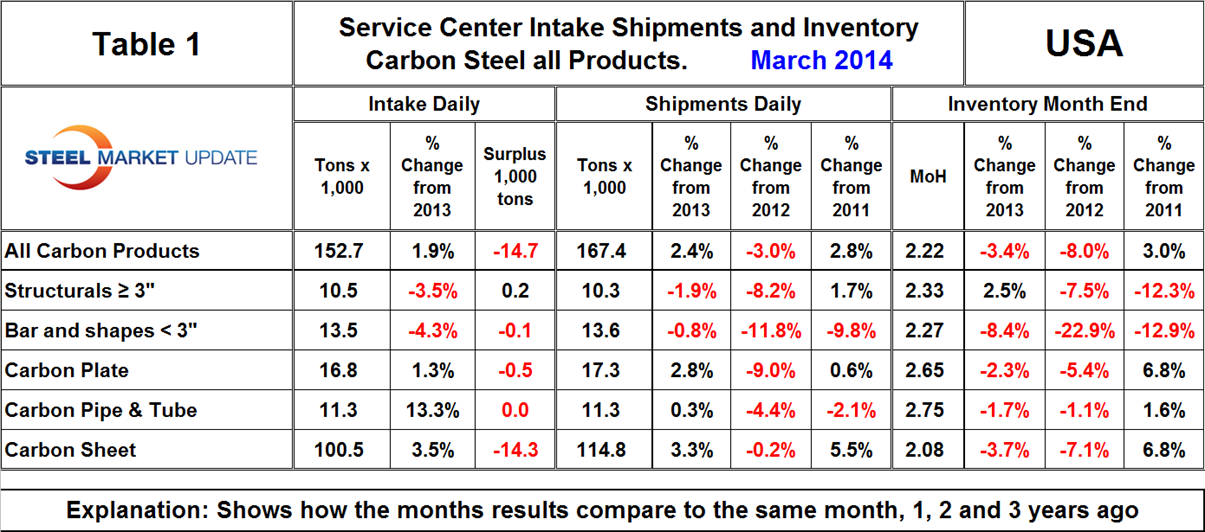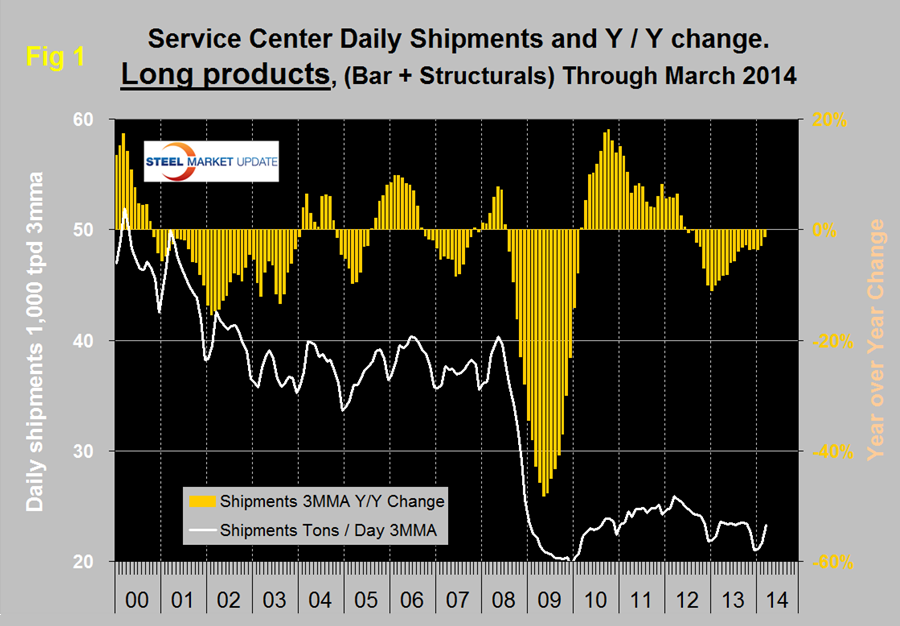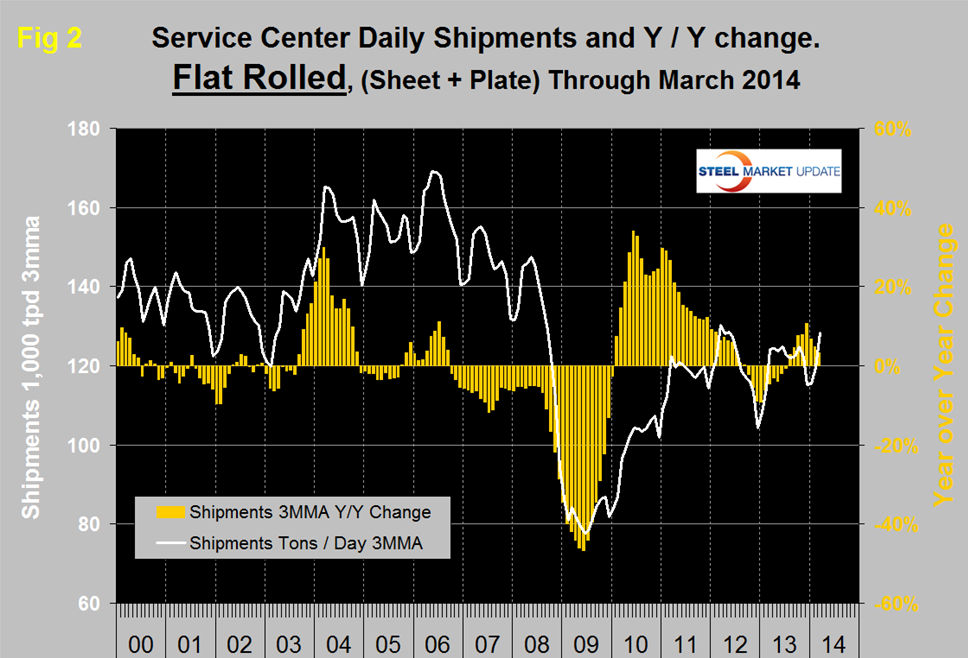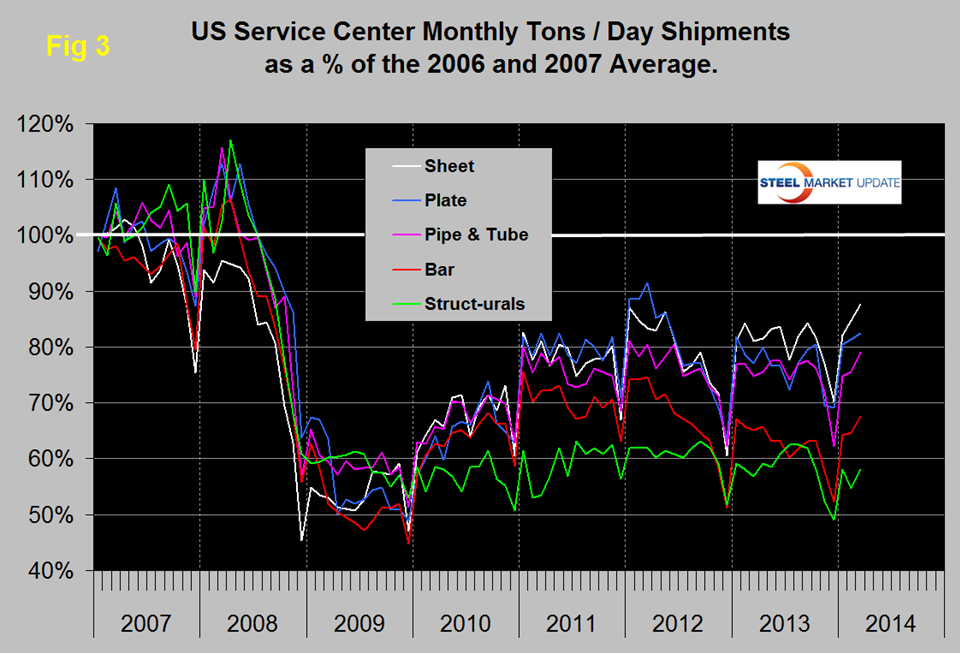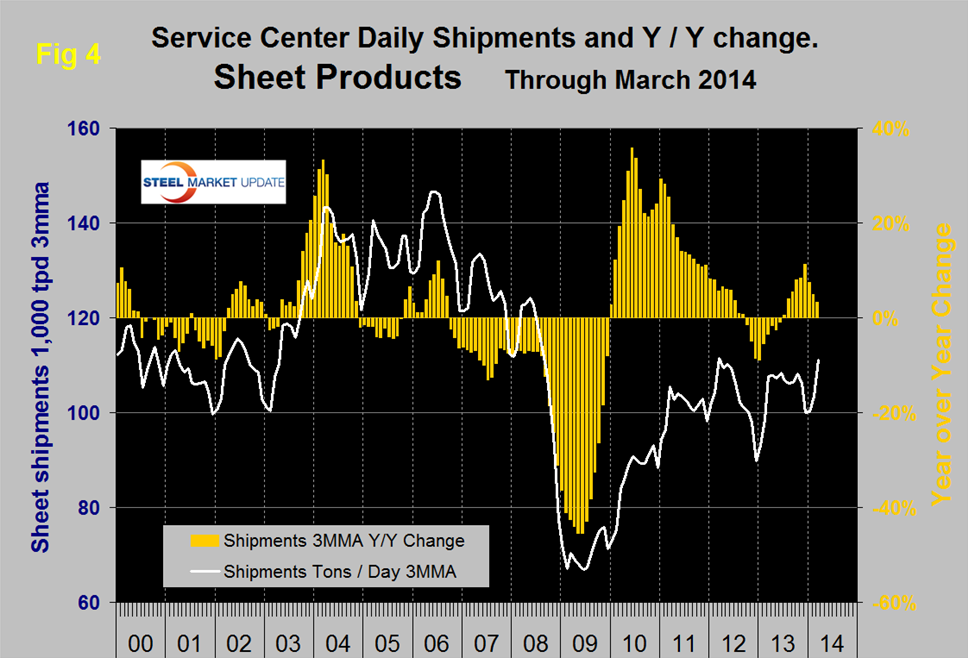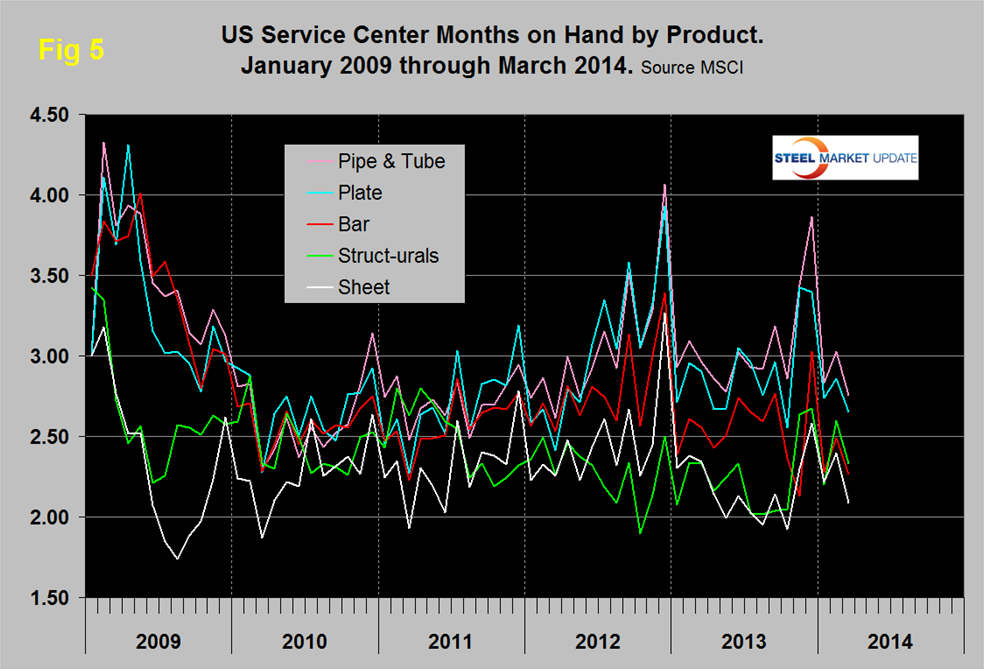Market Segment
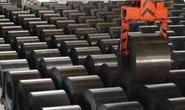
April 17, 2014
Service Center Intake, Shipments and Inventory for March 2014
Written by Peter Wright
Total service center carbon steel shipments in March rose by 283,700 tons to 3.515 million tons, more than making up for the February decline. Shipping days increased from 20 in February to 21 in March. Tons per day (t/d) shipments rose from 161,600 tons in February to 167,400 in March, both on a non-seasonally adjusted basis. Intake in March was 152,750 t/d leading to a daily deficit of 14,700 tons. Months on hand declined from 2.51 to 2.22.
Table 1 shows the performance by product in March compared to the same month in previous years. Shipments of all products on a t/d basis were up by 2.4 percent from March last year but this performance did not extend to long products. Both bar and structural t/d shipments were down from last year. Sheet products were up by 3.3 percent and plate by 2.8 percent. Pipe and tube about broke even with a y/y increase of 0.3 percent. The t/d shipments of all products were down from March 2011. In March intake followed the same pattern as shipments which is not always the case. Only structurals had an intake surplus in March. Compared to the end of March, last year inventories were down by 3.4 percent in total, only structurals experienced an increase. Except for structurals in 2014, inventories have been down across the board for two years.
There is a wide difference between the performance of flat rolled, (sheet + plate) and long products, (structurals + bar) at the service center level. Long products had a very poor recovery from the recession and on a y/y basis have been declining once again for every one of the last 21 months, (Figure 1).
Flat rolled has had a much better recovery since mid-2009 and has had positive y/y growth in each of the last eight months, (Figure 2).
In 2006 and 2007, the good old days, the mills and service centers were operating at maximum capacity. Figure 3 takes the shipments by product since that time frame and indexes them to the average for 2006 and 2007 in order to measure the extent to which each product’s shipments from service centers has recovered. Again it can be seen that sheet and plate have fared best, bar and structurals the worst and tubulars in between. Sheet has had the best recovery and in March was at 87.7 percent of the 2006 /2007 average. This is the best performance since the recession. Structurals are still only at 58.0 percent of where they were. The total of all carbon products is still only at 78.9 percent of the 2006 / 2007 average, therefore, is down by 21.1 percent. The recovery of the service center sector has been much slower than has been experienced by the mills. Presumably this is because in a relatively lack luster market, more buyers are by-passing service centers and buying mill direct and this is probably particularly true of long products. In addition, long products being more construction oriented are suffering from prevailing conditions in that business sector.
MSCI uses product nomenclature flat and plate. In our analysis at SMU we replace the term flat with sheet. By our interpretation of the MSCI’s data our definition of sheet is all hot rolled, cold rolled and coated products. Since most of our readers are sheet oriented we have removed plate from Figure 3 to highlight the history of sheet products, (Figure 4). Positive year over year growth has occurred in each of the last nine months following nine consecutive months of decline.
Figure 5 shows the change of inventory at service centers since 2009 measured as months on hand. All products experienced a decline in months on hand at the end of March. Sheet products constitute by far the largest segment of service center’s business and they have had the best inventory management since 2009 and currently have the lowest months on hand.



